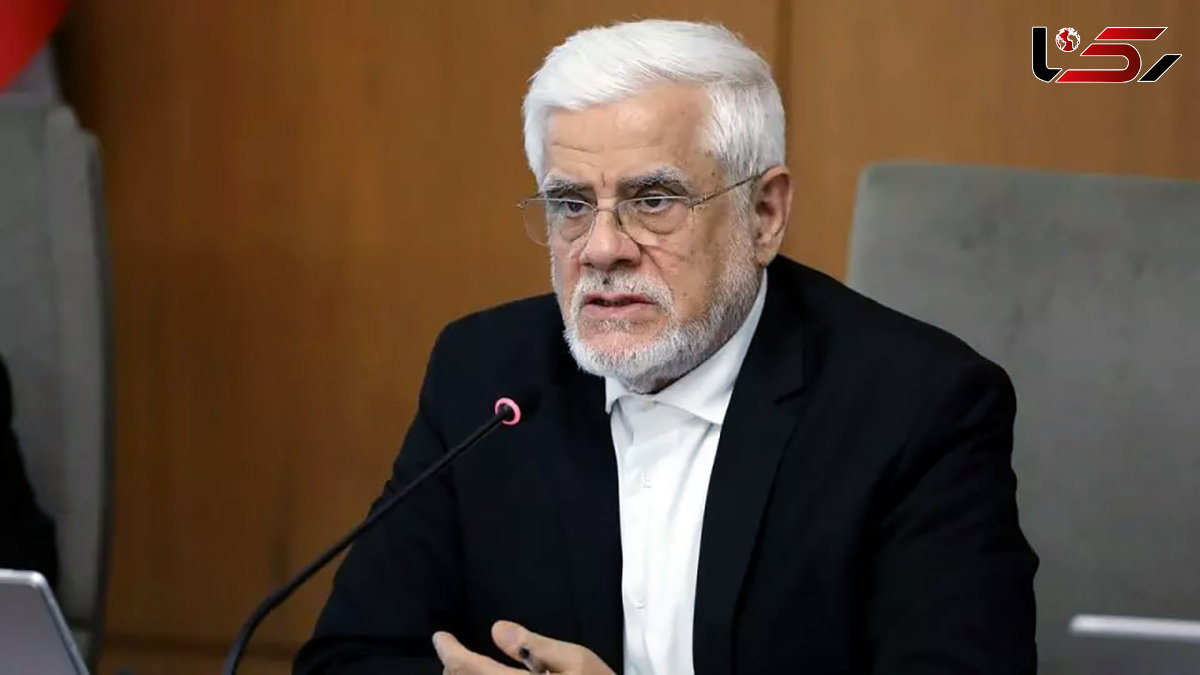Aref: Negotiations Can Be Direct
Rokna Political Desk: Mohammad Reza Aref, Iran’s First Vice President, announced that negotiations could be conducted directly.

The First Vice President stated regarding the negotiations: Iran has informed the negotiating party (the United States) that it is ready to build trust. The country is in a balanced state, prepared for talks. The conduct of the Islamic Republic of Iran in negotiations follows a path that aligns with the will of the people. If conditions are suitable, the negotiations could be conducted directly.
In a cordial meeting with journalists on the occasion of National Journalists’ Day, Mohammad Reza Aref, Iran’s First Vice President, expressed his honor in being among the “commanders of the media front,” emphasizing that the position of media and journalists has been firmly established in the past year. He extended his appreciation for their sincere efforts, noting that journalism is a challenging and hazardous profession, and during the recent 12-day conflict, it was evident that journalism is not merely a job, but a passion.
Aref continued that during the 12-day war, journalists could have remained in safe areas under various pretexts, yet they entered the field and sacrificed 12 lives for the country. He added that in Gaza, the Israeli regime has caused approximately 240 deaths among those resisting, underscoring that Iran faces not merely a regime but a harsh ideology that recognizes no place for human dignity, ethics, or virtuous traits, inherently embodying despicable qualities.
Gaza’s crimes are the darkest mark of 21st-century Western civilization.
He stressed that the crimes in Gaza represent the darkest stain of Western civilization in the 21st century, a completely black mark in human history, with an average of 60 innocent people killed daily in the region, while no response is heard from human rights organizations or self-proclaimed defenders of civilization.
Regarding the role of media during the 12-day conflict, Aref noted that Israel, following U.S. directives, waged war to overthrow the Iranian system, expecting to resolve the matter within three days. However, by God’s grace, Iran’s military capabilities were restored in less than 24 hours, and successful operations were carried out, thwarting the adversary’s initial strategy.
He added that the enemy hoped to exploit public dissatisfaction, yet the people exercised their right to voice concerns and protest. While acknowledging occasional missteps in addressing public criticism, Aref emphasized that the Iranian people possess limitless capacity, and the Islamic Republic is sufficiently resilient to accept all criticism, though some officials sometimes struggle to tolerate it.
He noted that adversaries, due to a lack of understanding of the Iranian people, often misinterpret protests as opposition to the government or the system. Nevertheless, during the 12-day war, the people rose to the occasion, and the media preserved the scene.
Referring to the formulation of the war-time economic program in early December of the previous year under the Fourteenth Government, Aref explained that the government’s strategy aimed to prepare for the worst-case scenario while ensuring that people’s lives remained stable. Despite the outbreak of war and terror on the first day of the administration, a specific economic plan with strategic reserves was implemented. While there were initial concerns, sales in chain stores decreased by only 20 percent, attributed to summer travel, the arrival of Muharram, and the onset of the conflict. Market conditions stabilized in the following days, and the government observed that citizens did not overstock even for a week’s supply, reflecting their extraordinary discipline.
The Fourteenth Government’s Strategy Is Consensus.
Aref described the Fourteenth Government’s strategy as one of consensus, which must be shared with the people, political and social groups, and the principal stakeholders of the revolution. He noted that the government had the courage to withdraw a bill submitted to parliament despite negative reactions, demonstrating the administration’s sincerity in dealings with the public.
He reiterated that media professionals are “commanders of the truth front” and urged journalists to act as allies of the government, as preserving social capital remains the foremost concern. Aref warned that the enemy should not be trusted during ceasefires, noting that they have consistently failed to honor their commitments, attacked the country in the midst of negotiations, tore up the JCPOA, and acted contrary to their promises, underscoring the necessity for preparedness.
Negotiations Can Be Conducted Directly.
Aref further criticized Western nations for falsely portraying Iran’s nuclear program as a political project, asserting that due to the cultural and ethical nature of the Islamic Revolution, Iran cannot adopt similar deceptions. He called on media outlets to assist the government in responding to adversaries within an Islamic and ethical framework.
Regarding nuclear negotiations with the United States, Aref emphasized that Iran is not opposed to dialogue, but the nature of the U.S. is to dictate terms, which the Iranian people have rejected, and the government is not permitted to accept. He reaffirmed Iran’s commitment to negotiating with dignity, without abandoning uranium enrichment, describing proposals for zero enrichment as “a major joke.”
He concluded by stating that Iran has communicated its readiness to build trust with negotiating partners, yet perceives a lack of responsiveness. The country remains in a balanced state, prepared for negotiations intended to protect the interests of both parties. Aref confirmed that the Islamic Republic’s conduct in negotiations aligns with the will of the people and, under suitable conditions, direct talks could indeed take place.
Send Comments